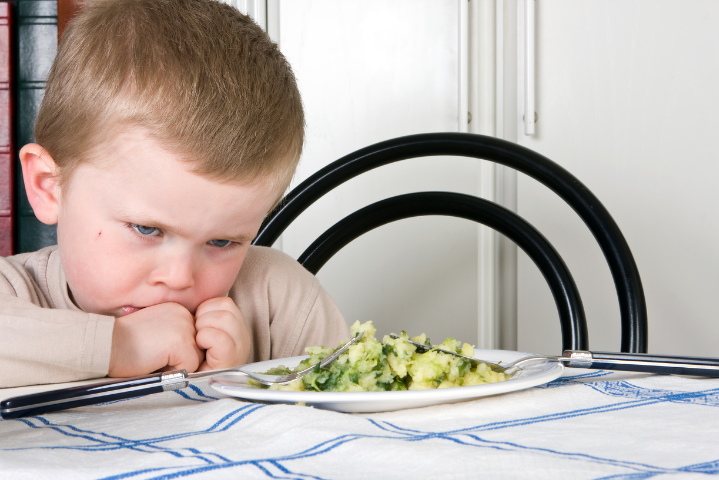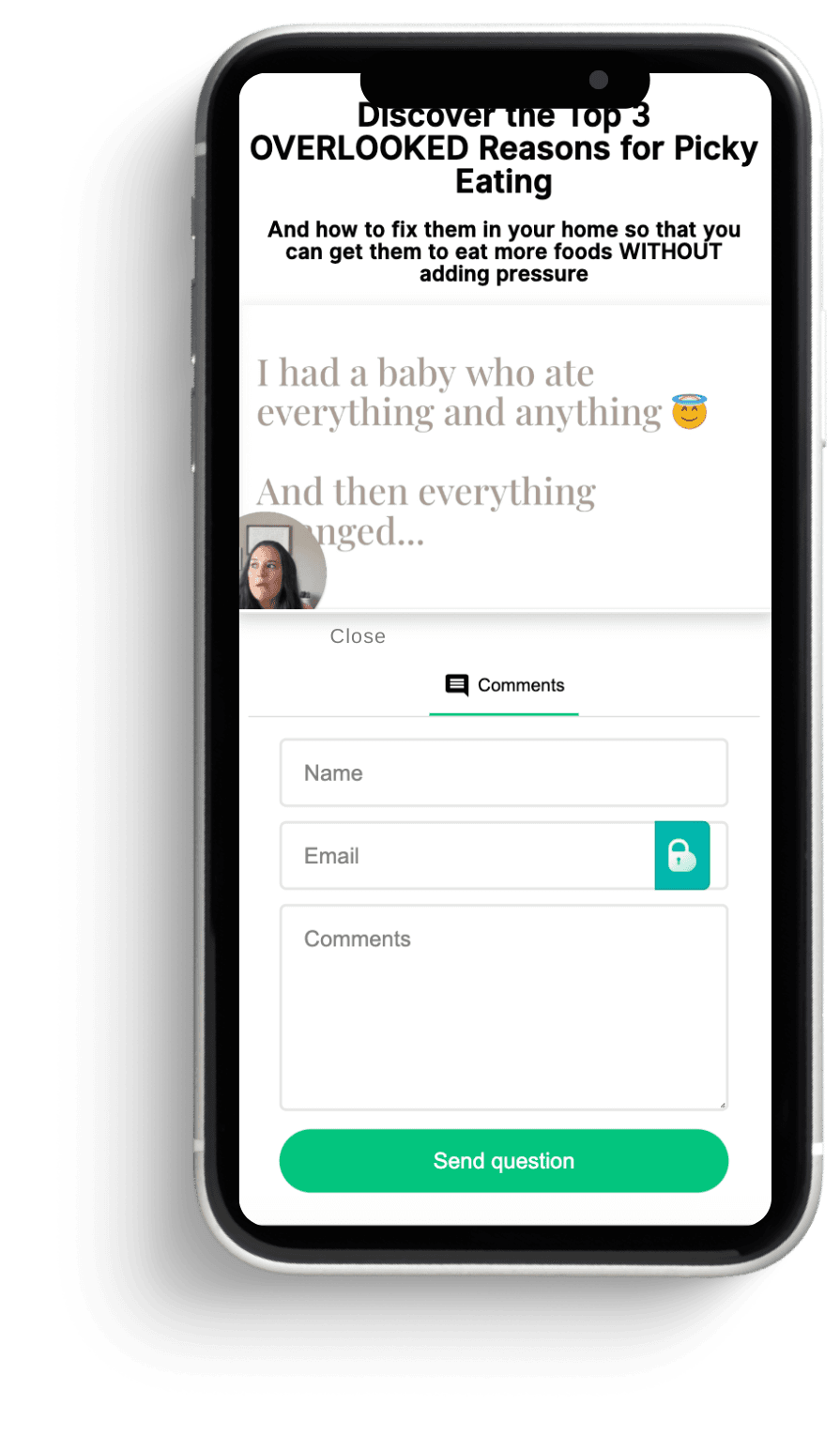
My Kid Called Dinner ‘Yucky’—Here’s What I Did!
Hearing your little one call your dinner “yucky” can be frustrating and demoralizing, especially after a long day of work or parenting. I know first hand that it’s a situation that can test the limits of parental patience. So today, let’s explore navigating these tricky dinner-time conversations, helping your kids communicate respectfully at the dinner table.
Recognizing and Managing Our (Normal) Emotional Response
Experiencing your child’s negative reaction to a meal can often trigger an emotional response from you, the parent. It’s natural to feel a sting when they, perhaps inadvertently, hurt our feelings.
But, when we express our unfiltered, unregulated emotions, it can sometimes lead to heightened emotions at the dinner table. When this happens, a cycle of reactivity begins. Before you know it, the situation has escalated, leaving everyone feeling even more upset and frustrated, which can make it difficult and uncomfortable for our littles to express themselves again in the future.
So, take some time now to think of HOW you want to respond when this happens next. Right now you are likely unemotional about it so you can think clearly on how you’d like to respond. So next time this happens you can recognize the emotion, then think back (to right now) when you decided how you would respond and respond out of a plan instead of emotion.
Educate Them on Communication
Children are new to the table—literally. They are still learning how to express themselves appropriately, both at and away from the dinner table. And they learn these cultural norms from us. So, modeling appropriate responses is essential.

Still having trouble feeding your picky eater?
Sign up for our FREE class to get more answers to your questions
When a child calls food “yucky,” it’s an opportunity to teach them about respectful communication. For example, I like to say, “I hear that you don’t want the food in front of you. Next time, Mom would like to hear you say ________.”
Fill in the blank with what aligns with your family’s definition of respect.
Here are a few of my go-to responses:
- We don’t yuck someone else’s yum. – This is one of my favorites, but it usually works best for toddlers and older. Start by explaining that it’s not okay to call something yucky that someone else thinks is yummy.
Then, I like to share an example. For example, if you like to ride bikes but I like scooters, that doesn’t mean scooters are yucky. That just means that you like bikes, and I like scooters. - Next time, say, “No, thank you. Not today.” or “I’m not interested in this right now.” At the core of working with picky eaters is encouraging a growth mindset.
When kids say, “Ew, gross!” it cements their dislike for the food. Something as simple as “No, thank you” takes the line-in-the-sand mentality and replaces it with an open mindset.
It’s okay not to like a food today, but that doesn’t have to mean we won’t ever like it. Sometimes, I want broccoli on Monday, and I don’t want to see it at all by Tuesday. That’s okay!
If these two responses aren’t quite what you’re looking for, consider these extras:
- “I don’t want this right now, but maybe I’ll try it next time.”
- “This isn’t my favorite, but I’m glad I tried it.”
- “Can I have a small portion to start with?”
- “This is interesting, but I’m unsure how I feel about it yet.”
- “Thank you for making this. Can I try this another time?”
Bottom line: it’s okay to have feelings about food, but it’s not acceptable to disrespect others over our food preferences.

Final Thoughts: Not Everything Requires Immediate Action
Being too tired or frustrated to address your child’s comments immediately is okay. In my experience, handling the situation in the moment is rarely the best timing anyway. I find it’s best to tackle these teaching moments after my emotions have settled.
Returning to the conversation with a calm and clear mind often leads to more effective communication. For example, I’ve found success by revisiting the topic later, saying something like, “Hey, remember when you said that? I understand why you felt that way, but it actually hurt my feelings, and here’s why…”
This approach allows for constructive conversation and helps your child understand the impact of their words. These conversations are crucial in helping our children build effective communication skills they can use for the rest of their lives.
And remember, pressuring, bribing, or begging rarely leads to lasting change. Instead, encourage respectful refusals and foster a space where trying new foods happens in their own time.

Hi there! My name is Alyssa
I'm a registered dietitian and picky eating specialist with nearly a decade of experience, mom of three, and the founder of Nutrition for Littles. I'm dedicated to making mealtimes enjoyable and nutritious for families.
Do you need more help with your picky eater? I want to invite you to my free class to reverse picky eating!
Sign Up